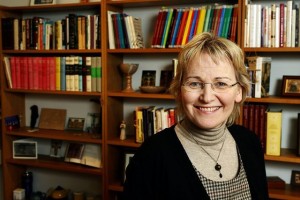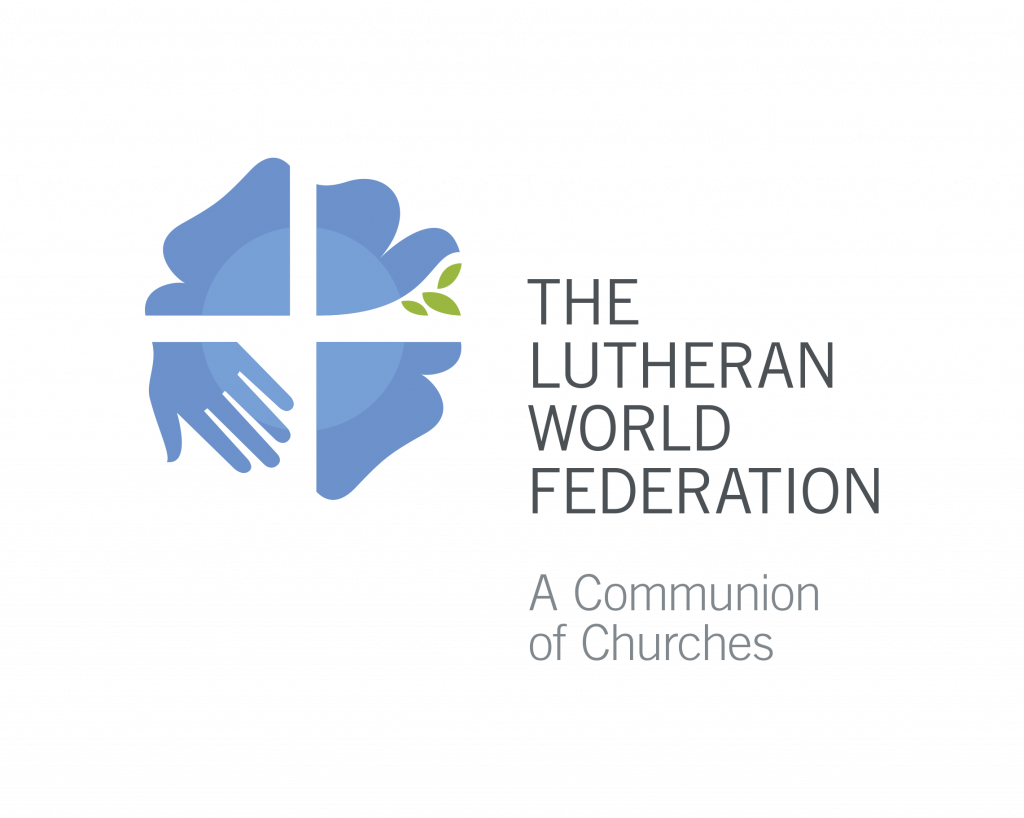Sermon in the Loehe Chapel (September 29, 2016)
Haustið 2016 var ég gestaprófessor við Wartburg Seminary, Dubuque Iowa. Þetta er prédikun sem ég flutti í Loehe Chapel í Wartburg Seminary, 29. september 2016.
Textar dagsins:
Daniel 10:10-14; 12:1-3
Psalm 103:1-5, 20-22,
Luke 10:17-20
Náð sé með yður og friður frá Guði föður vorum og Drottni Jesú Kirsti. Amen.
Grace to you and peace from God our Father and the Lord Jesus Christ. Amen.
Today, September 29th, marks a new beginning in the history of the Evangelical Lutheran Church of Iceland, my homechurch, because on this day, on September 29th, 1974, the first woman was ordained to become a pastor within the ELCI. Her name is Audur Eir Vilhjalmsdottir, who for over twenty years has been the pastor of the Women-church, which is an active congreation within the Lutheran church. This is why, we celebrate today 42 years of women’s ordination in my homechurch. 42 years is not a long time, within the history of the one, holy, catholic and apostolic church. Only one generation out of so many. The second woman to be ordained, was the daughter of the first one, and was ordained in 1981. I was ordained 6 years later, and was the eighth woman to be ordained within our church. Yes, we do still keep track, and when we meet we do remind each other of our respective numbers. I think it is a nice way to remember how short back our history really goes. Now there are 86 women who have been ordained altogether.
The first Lutheran woman to be ordained in the US was Elizabeth Alvina Platz. She was ordained by the Lutheran Church in America in 1970. But the ordination of women in the United States goes all the way back to the beginning of the 19th century. I don’t have the numbers here, but this could be an interesting research project for somebody to work on. And maybe it has already been done.
Well, I know, this is all church history, but it is also a significant part of our tradition, our common Christian tradition. As Christians, we are constantly looking back, and referring to things that happened in the past. But our task as people of faith, is to remember things from the past, for a purpose. We do remember things from the past, because we build our faith on what happened in the past. So, we remember things from the past, because of what they mean to us in the present. But we also remember things from the past, because of what they will mean for future generations. That is what tradition is all about. Tradition simply means something that is being passed on. Something that is passed on from one generation to another. But it is not our task to simply pass it on to the next generation, just as we received it, because it is our task, and our responsibility, to interpret what we have received, in light of our own context. And then the next generation will have the same task, and responsibility. This is why tradition is not the same as status quo. If it was, then I would not be standing here remembering the history of women’s ordination, because then women would never have been ordained. Or is it possible that it could be the other way around! Because if tradition is all about status quo, to do the things exactly as it has been done before, maybe women would then never have been denied ordination, because in the beginning women were indeed actively involved in the preaching of the gospel, and the ministry of the church. But this was before the time the church became an institution, and the practice was changed, and ordained ministry was instituted. And the new order excluded women from ordained ministry. An interesting thought, or what? Anyway, this line of thinking brings us back to the gospel text of today, in Luke 10.
In this text Jesus is receiving a group of people, 70 altogether, people he had sent out on a mission, to cure the sick, and to tell those who would welcome them: “the kingdom of God has come near to you”. (Luke 10:9) Certainly a big message and a great responsibility! And now they are back, and they are thrilled, because they had realized that “even the demons” would submit to them. But while Jesus acknowledged the power they had been given, he did remind them that the most important thing was not they had been given certain gifts, and powers, but that God had accepted them into God’s kingdom. In other words, Jesus did not like his disciples to get all caught up in triumphalism, but to be humble and grateful for being amongst God’s people. A good reminder to all of us, who have been called to be “laborers into God’s harvest.” (Luke 10:2)
And now my question: what about the women? Were there any women amongst the 70, who were sent? The text doesn’t say, but it is interesting to follow the narration leading up to the sending of the seventy, in Luke’s gospel. It all starts back in chapter 5, where Jesus calls the first disciples, Simon Peter, James and John. Then Jesus chooses the twelve Apostles in chapter six. No surprises here. They are all male! The surprise comes in the beginning of chapter 8. It reads, and I quote:
Soon afterwards he went on through cities and villages, proclaiming and bringing the good news of the kingdom of God. The twelve were with him, 2 as well as some women who had been cured of evil spirits and infirmities: Mary, called Magdalene, from whom seven demons had gone out, 3 and Joanna, the wife of Herod’s steward Chuza, and Susanna, and many others, who provided for them[a] out of their resources. (Luke 8.1-3).
Yes, there were women amongst the closest followers of Jesus, according to Luke. Three of them have names, and background information. And the women, “who had come with him from Galilee” are there until the very end of the gospel, witnessing the death and the resurrection of their master and friend. But when it comes to the sending of the seventy in the beginning of chapter 10, we are not told if the women in the group got to go on the mission with their male friends. We only know that women were there with Jesus, providing for him and the other followers “out of their resources”.
And we know that women were active participants during the early days of the church, when the message about Jesus Christ began spreading amongst Jews and Gentiles, and some of them became leaders of the newly established churches. But that changed by the end of the first century, when women were no longer allowed to lead, or teach and were told to be silent. Even if we know that not all women remained silent, most women did. When Luther put forward his idea about the priesthood of all believers in the sixteenth century, it was logical that he would also start arguing for the ordination of women. But he didn’t, because he didn’t believe women were fit to do the job. That says a lot about him as a man of his own historical context. However, he was willing to support some of his women friends to become advocates of the reformation. One of them was Katharina Zell, who was married to Matthias Zell, a pastor of the cathedral of Strasbourg. In Katharina’s case, Luther’s idea of the priesthood of all believers made all the difference for her self-understanding, as well as her chances to become an active minister of the church of God, even if she did not have the option to be ordained.
When women in the western part of the world started to fight for their rights, during the 19th century and the early 20th century, the question of women’s ordination was raised again. Gradually denominations started to ordain women as pastors, and later as bishops. When the question was raised within Lutheran churches, Luther’s idea of the universal priesthood of all baptized, implying the true equality of women and men in the eyes of God, had prepared the ground.
It is truly a painful fact that still today, on the 29th of September 2016, there are large denominations within the one, holy, catholic and apostolic church, where women are still excluded from ordained ministry. “Ordain women, or stop baptizing them!”, has been a slogan frequently used by those who argue for women’s ordination within those denominations. It is the strongest argument I can think of when it comes to the question if women should be ordained or not. The ritual of baptism, makes it clear to us, that in Christ there is no discrimination based on gender, but this is also true for all discrimination, as we are reminded of in the old baptismal formula in the 3rd chapter of the letter to the Galatians. In Christ there is, or should not be, any discrimination based on class, race, ethnicity, sexual orientation, or for any other reasons.
It is a serious theological matter to deny ordination to anyone who has been called into ordained ministry, based on prejudism and discrimination. Inclusivism is certainly much more than something that has to do with language. The church of God is called to be an inclusive community, with inclusive practices, where nobody is excluded from full participation.
And finally, back to the gospel text, and the demons and powers of the enemy Jesus is referring to in the text. What possibly could they refer to in our time and place? I would like to suggest that in our context, those demons and powers may mean anything that robs people from living up to their full humanity, and from full participation in the community of God’s people on earth. May we, each and every one, have the courage to stand up against those demons and those powers, but not in order to pride ourselves for our own power and might. Ours is simply to be grateful for being accepted by God just as God has made us, and to recognize God’s image in our sisters and brothers. In the end, the power is not ours, but God’s alone. Amen.

